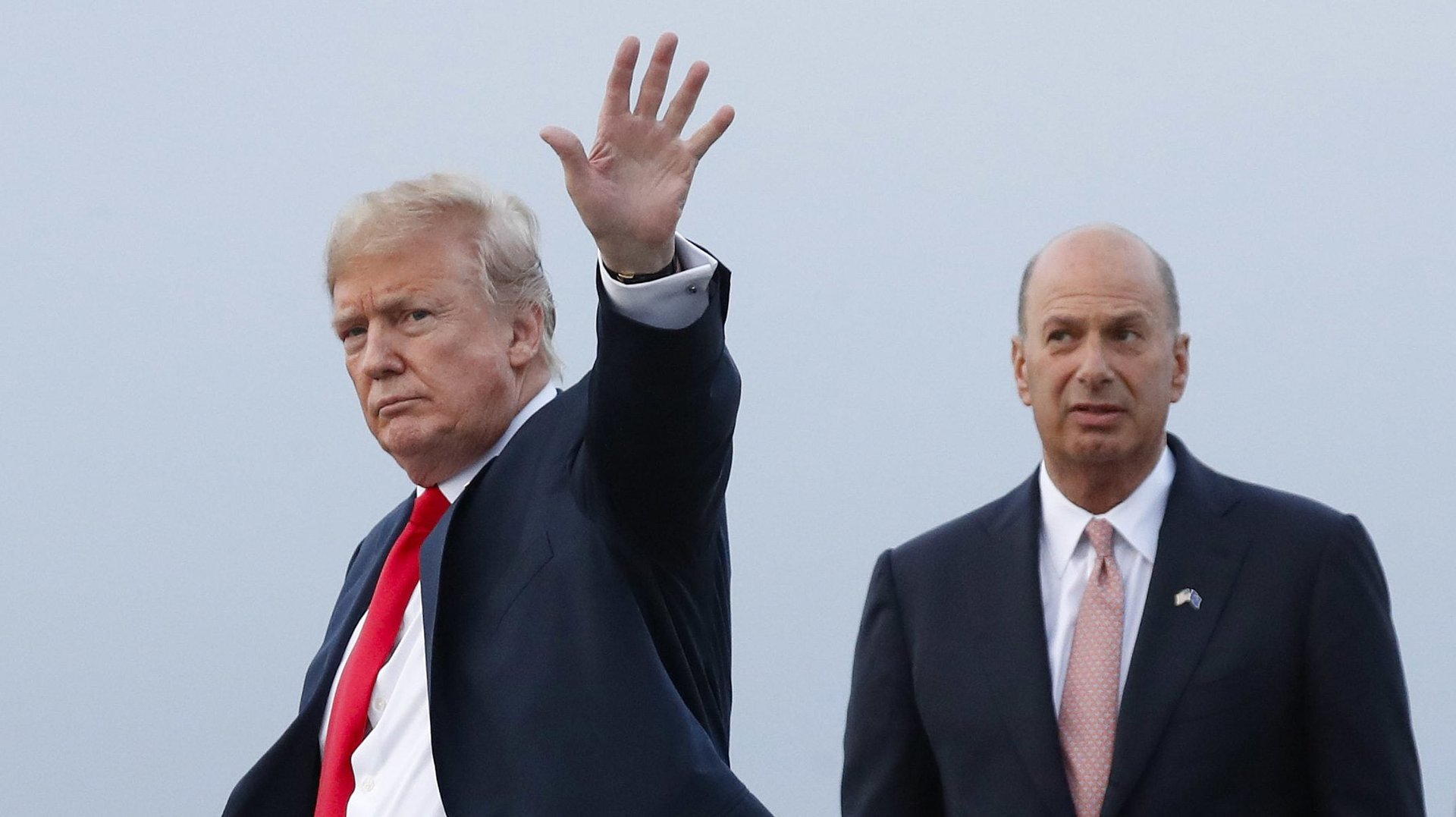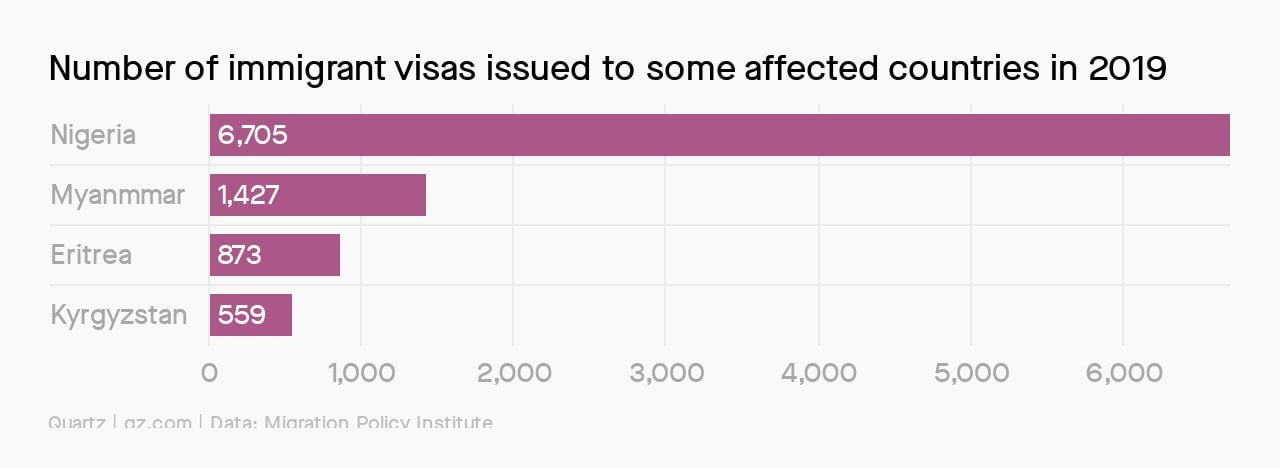The Trump administration has confirmed visa bans on four African countries, including Nigeria
The Trump administration’s controversial visa and travel bans has now been extended to include four more African countries.


The Trump administration’s controversial visa and travel bans has now been extended to include four more African countries.
The new restrictions will see the United States no longer issue immigrant visas that offer a path to permanent residency, and possibly citizenship, to nationals of Nigeria and Eritrea, US officials have confirmed. Between them, Nigeria and Eritrea account for 14% of all green cards issued annually to African nationals, according to the Migration Policy Institute. Nationals of Kyrgyzstan and Myanmar will also face similar restrictions.
For their part, citizens of Tanzania and Sudan will now be omitted from the United States’ popular visa lottery scheme which is typically available for nationals in countries that have low levels of immigrant populations in the US. Despite initially reported to be affected by the expanded travel ban, Belarus has been excluded altogether.

The US has defended its decision with claims that the affected countries fell short of its security standards, including passport technology, and failed to share information on criminals and terrorist suspects. However, the restrictions will likely face intense criticism of suspected discriminatory undertones with two of the four affected African countries being Muslim-majority nations.
“The administration’s expanded travel ban now affects close to a quarter of the population of the African continent,” said Gyude Moore, a former Liberian government minister and current fellow at the Center for Global Development in Washington DC. “Less than a year after the US government unveiled its new US-Africa trade policy Prosper Africa, nationals of Nigeria, the continent’s largest country and economy, are being banned from visas that may lead to permanent residency in the US.”
Some analysts have described the expanding travel restrictions as an “African ban” and an attempt by Trump to shore up his electoral base in the run-up to November’s presidential election where immmigration will likely again be a hot button topic.
“The rationale for limiting visas to the nationals of these four African countries can only be seen as a demand for a reduction in immigration from African countries collectively especially due to the White House’s previous assessment regarding ‘shithole countries’,” said Michael Clemens, a migration economist with CGD.
While the restrictions on Nigeria and Eritrea will not affect visitor visa applications, it will likely result in increased scrutiny on applicants from affected countries. There is already increasing anecdotal evidence that the scrutiny of visa applications from Nigerians has heightened.
Nigeria’s inclusion in the travel ban comes after other visa clampdown measures, including the suspension of a visa interview waiver program and a hike in visa application fees. The measures have had a clear impact as Nigeria recorded the largest global drop-off in visitors to the US. It also comes despite years of an ostensibly amicable relationship between both countries and 20 months after Trump hosted Nigeria’s president Buhari at the White House.
Joe Neguse, a Colorado Democrat in the US Congress criticized the ban on Twitter. “As a son of Eritrean refugees, let me be clear: The President’s travel ban on African countries contradicts our American values and the promise and refuge our country has offered to immigrants and refugees for centuries. It is unconscionable. It is wrong. And we must oppose it.”
Sign up to the Quartz Africa Weekly Brief here for news and analysis on African business, tech and innovation in your inbox